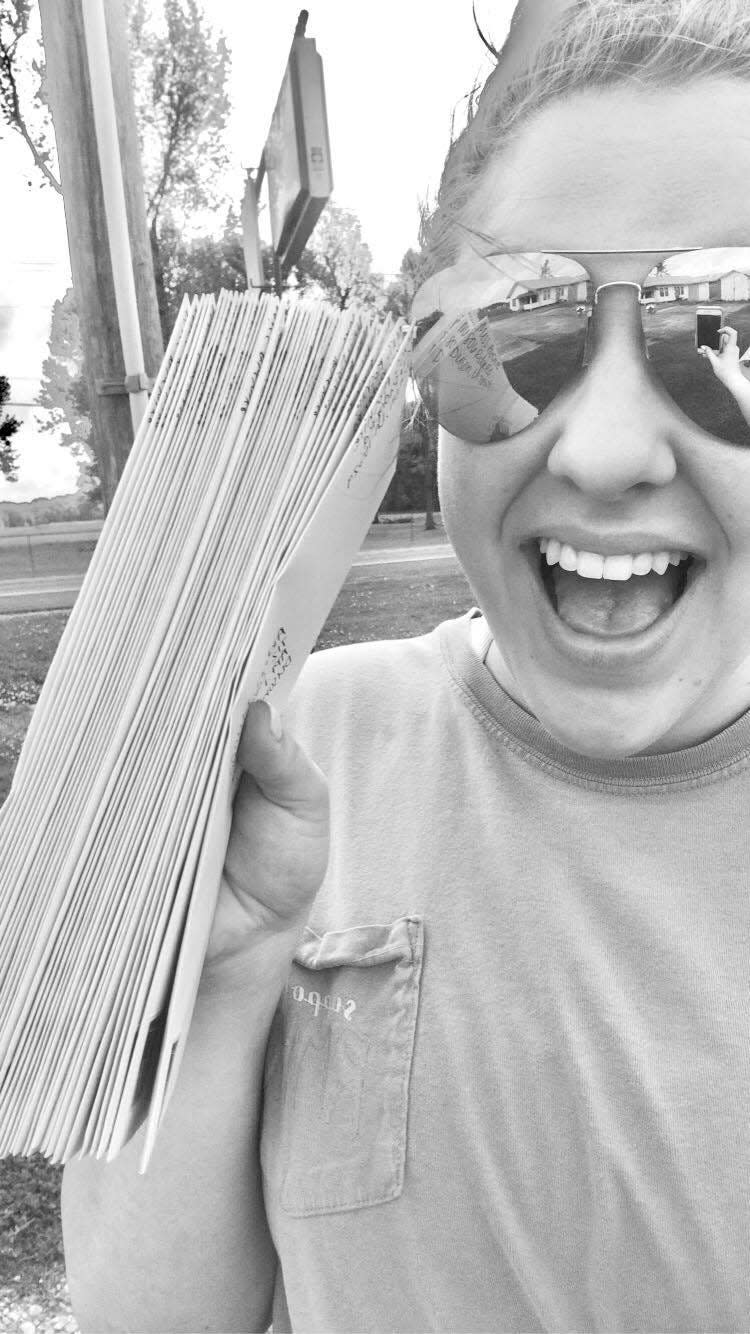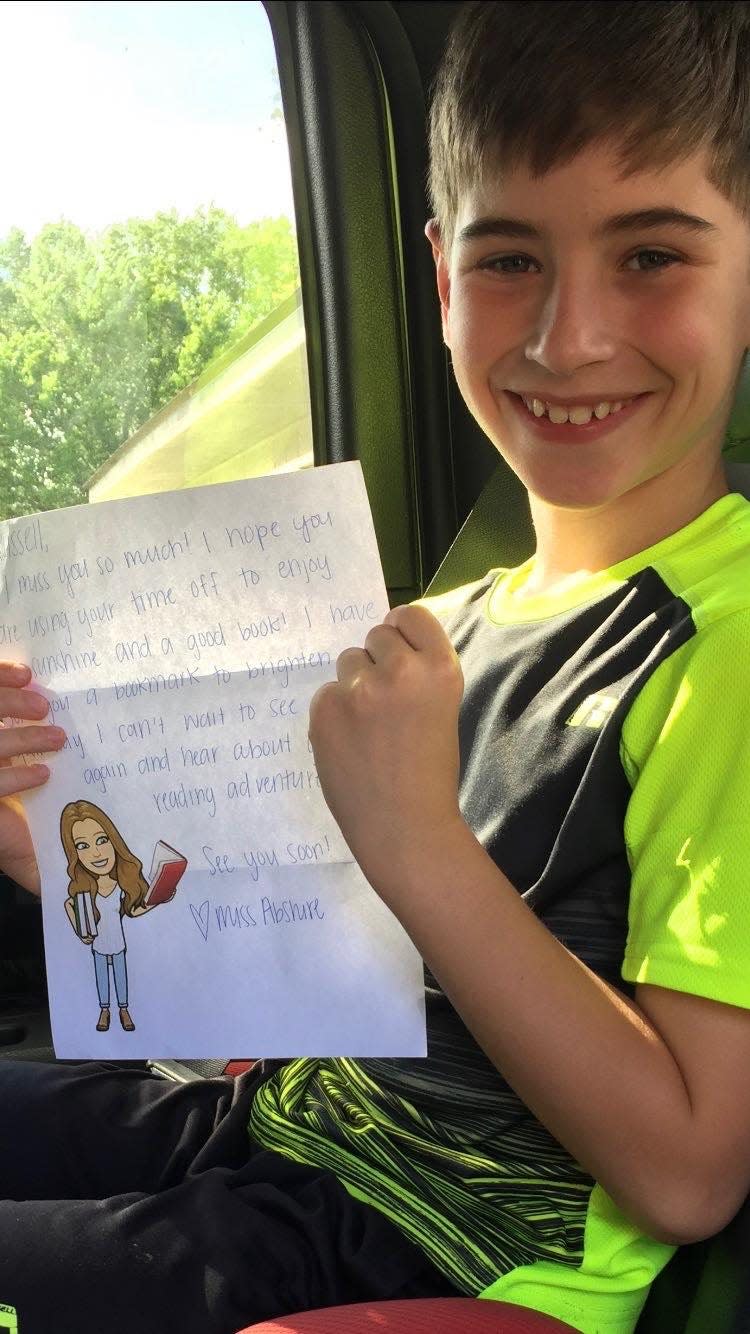Coronavirus school closures push out student teachers. Will US teacher shortage get worse?

LOUISVILLE, Ky. – When Abby Woods started student teaching earlier this year, she didn't expect lengthy, statewide school closures.
A senior education major at the University of Louisville, Woods' semester as a student teacher is one of her last requirements to becoming a certified educator.
But when her Oldham County elementary closed because of coronavirus, she had to rapidly pivot to virtual lessons to earn her certification.
Instead of working with kindergartners in person, she is now recording herself reading books aloud and preparing virtual phonics lessons for her kids at home.
"It has been a huge adjustment since the school closings," Woods said.
Sudden, lengthy closures across the country could capsize student teachers' efforts to become certified and start teaching in their own classrooms. Educators and professors are concerned the switch to remote learning – increasingly, for the rest of the school year – will limit student teachers' exposure to leading lessons and managing a classroom.

The stakes are high: This year's class of new teachers is much-needed amid a national teacher shortage.
By 2025, the United States is expected to be short around 200,000 teachers, according to research by the Economic Policy Institute. Without enough teachers, classrooms – particularly those in high-needs schools – may go without a long-term leader.
But education officials and colleges say they are working to ensure widespread school closures don't prevent the next crop of educators from joining the full-time teaching force this fall.
Amy Kirk, 23, a master’s student studying elementary education at the University of Florida, is in her final semester of a yearlong student teaching internship at Limestone Creek Elementary in Jupiter, Florida.
Teachers under pressure: No matter where they work, they feel disrespect
Not all students have access, either: How coronavirus has changed school for kids without internetShe taught fourth grade in the fall, and this semester, fifth. Her mentor let her oversee the class most of the time, she said, so she could get as much experience as possible before becoming a full-time teacher.
Virtual learning, though, has been less engaging.
“Being an intern and not a full-time employee for the district, I don’t have a lot of access to online resources," Kirk said. "Coming from being in charge 95% of the time to not having access is a strange transition where I feel helpless."
Developing skills for online classrooms
How teachers decide to handle virtual learning could affect how much face time or lesson-planning experience a student teacher receives. Some might get a standard teacher certification but less experience than intended.
An upside is that student teachers are racking up experience in distance learning.
"We are emphasizing that this is an opportunity for student teachers to develop important skills for their future classrooms, such as flexibility and creativity, along with skills in adapting instruction to individual students or how to incorporate technology to enhance teaching within the classroom," said Zora Wolfe, an education leadership professor at Widener University in Pennsylvania.

Nationally, not all education majors are in the same situation.
Some soon-to-be educators do their student teaching in the fall or participate in yearlong programs. Many of those students are relatively untouched by current K-12 school closures.
At the University of Arkansas, students complete yearlong internships that go above the state's student teaching requirements, education professor Marcia Imbeau said.
While those students are finishing up coursework online, "their time for working with children is obviously over," Imbeau said. They've already completed the 16 weeks of student teaching Arkansas law requires, which was "fortunate," she said.
To become a certified teacher in Kentucky, students need to spend 70 days teaching under the purview of a current educator. Typically, those days are spent in a classroom, in front of students. Occasionally, a university administrator observes.
But with schools across Kentucky shuttered, teachers and soon-to-be teachers are moving online or doing other forms of distance learning.
Days spent doing distance learning – formally called nontraditional instruction – can count toward student teaching days "if the student teacher participates with the supervising teacher," Rob Akers, an associate commissioner of educator licensure, wrote in a memo.
School out all spring? Experts debate holding kids back, instituting summer school
'Your heart aches'
Unlike some states, Florida does not require student teachers to complete a certain number of days or hours in the classroom to be certified. Instead, student teachers must complete a state-approved teacher preparation program and pass specific competencies, or skills.
During the coronavirus outbreak, Florida leaders have provided no statewide guidance on student teachers, leaving individual institutions to determine what the teachers-in-training will do for the remainder of the semester.
Student teachers at the University of Central Florida had been in the classroom just nine weeks before schools were shut down, said Pamela “Sissi” Carroll, dean of the College of Community Innovation and Education. Students typically spend 14 weeks in the classroom during their placement.
Still, most students already had demonstrated their ability to teach a full class, Carroll said. Those who had not, she said, will be given coursework to complete remotely.
In some areas, student teachers have been uniquely positioned to help their adopted classrooms adjust to online learning. Education professor Tisha Duncan's at Meredith College in North Carolina said her students are "providing a valuable service" by sharing their skills with technology and online platforms.
North Carolina's public schools are closed until May 15, but the impact on student teachers differs by district, Duncan said.
Some are planning lessons for remote learning. Others are going in-person to optional teacher workdays.
"While not ideal and difficult, the silver lining is that our student teachers are able to gain experience in virtual collaborative planning and teaching that they may not have otherwise had the chance to do as extensively during their internship," she said.
It is unclear how school closures impact certification in North Carolina. Universities have asked state education leaders for guidance, but haven't heard back.
On a recent teleconference with her student teachers, Duncan gave them some advice.
"It doesn't matter what age you teach. When it is your passion, then your heart aches when you cannot interact with your students regularly and in ways that are familiar and comfortable," she said.
Student teacher Raegan Abshire wrote letters to each of her 39 third-graders in Duson, Louisiana, after a few weeks being out of school.
"Honestly I was just getting really lonesome for them," Abshire said. "It's my first year teaching. I've gotten very close to these kids, my first group."

Contributing: Leigh Guidry, The Daily Advertiser, Lafayette, Louisiana
Follow Olivia Krauth on Twitter at @oliviakrauth and Sommer Brugal at @smbrugal.
This article originally appeared on Louisville Courier Journal: Conoravirus: School closures interrupt student teaching

